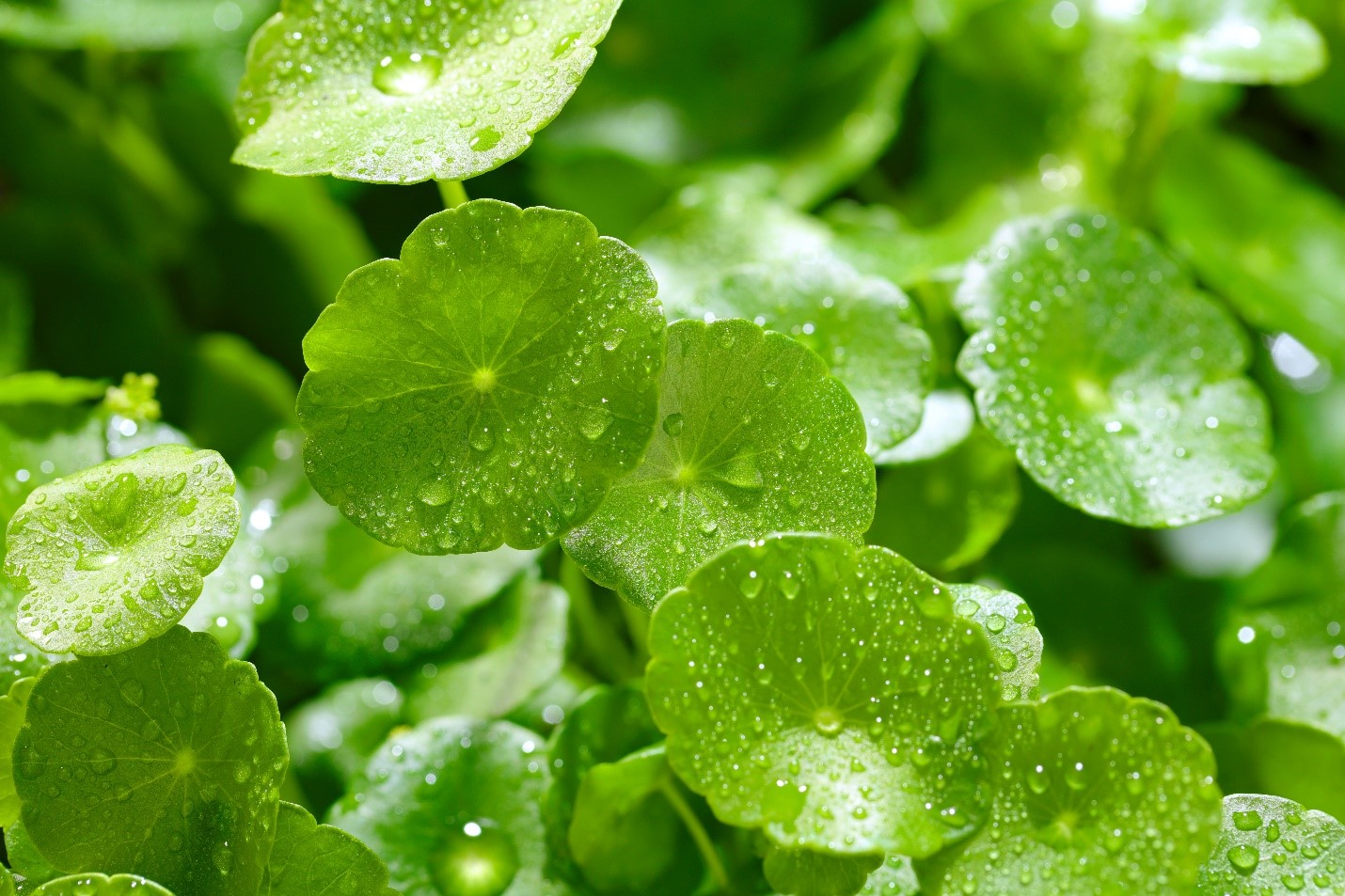Supporting Neuroplastic Processes with Herbal Compounds
What is Neuroplasticity?
Neuroplasticity and neurogenesis are crucial processes in maintaining a healthy brain. Neuroplasticity refers to the brain’s remarkable ability to reorganize itself by forming new neural connections throughout life. This adaptability allows the brain to adapt to new situations, improve cognitive functions, and compensate for injury. Neurogenesis, on the other hand, is the process by which new neurons are generated, primarily in the hippocampus, a region associated with memory and learning. In a healthy brain, these processes work together to maintain cognitive flexibility, healthy mood, and mental resilience. However, oxidative stress, inflammation and high levels of stress can negatively impact neuroplasticity. The generation of free radicals is a normal process in a healthy body, however oxidative stress occurs when there’s an imbalance between free radicals and antioxidants. This can reduce neurogenesis and neuroplasticity. Inflammation, a normal response to injury or infection, can also disrupt neural connections and hinder the formation of new neurons. Acute exposure to positive stress can enhance learning and brain function, however ongoing negative stress can impair neuroplastic processes. While these factors can pose challenges, it’s important to note that the brain has a robust capacity for recovery and adaptation.1,2 Supporting the brain’s natural abilities to manage stress, oxidative stress and inflammatory processes, with herbs and healthy lifestyle practices may also help to enhance neuroplasticity throughout life.
Herbal Compounds Could Support Neuroplasticity
Curcumin is an antioxidant
.jpg)
Turmeric has been used as a food and in herbal preparations for thousands of years. Modern science supports this long tradition, with Turmeric and its key active phytochemical curcumin being well studied in the scientific literature. Curcumin is a well-regarded antioxidant. It is an effective scavenger of reactive oxygen and nitrogen species, demonstrating direct antioxidant activity. Additionally, it can enhance the expression of other antioxidant enzyme systems in the body, including glutathione and nuclear factor E2-related factor 2 (Nrf2).3 A randomized controlled trial in 60 healthy subjects under occupational stress examined the effects of curcumin as CurQfen 500 mg twice daily (equivalent total curcuminoids 391 mg, equivalent curcumin 307 mg) on antioxidant markers and quality of life. The trial found that the CurQfen group had a significant elevation of antioxidant enzymes including erythrocyte catalase
(p<0.01), superoxide dismutase (p<0.01), glutathione peroxidase (p<0.01), and glutathione
(p<0.01) levels, and a significant reduction in thiobarbituric acid-reactive substances (a marker of lipid peroxidation) values (p<0.001) between the baseline and the end of study period. No significant effects (p>0.05) were noticed in the placebo group. Improvements in quality of life and perceived stress scores were also seen in the CurQfen group.4
Curcumin supports normal inflammatory processes
Curcumin has been shown to modulate mediators of the normal inflammatory response, including cytokines, chemokines, adhesion molecules, growth factors, and inflammatory enzymes such as cyclooxygenase (COX), lipoxygenase (LOX), inducible nitric oxide synthase
NOS) and nuclear factor-kappa B (NF-κB).3 Meta-analysis data shows that curcumin supplementation can significantly reduce circulating levels of tumor necrosis factor-alpha (TNF-α) (p<0.001);5 and interleukin 6 (p=0.011),6 compared to placebo.
Gotu Kola is a brain tonic

In Ayurveda, Gotu Kola is a key herb used for the revitalization of the nerves and brain. It is considered a Medhya-Rasayana herb, or rejuvenating brain tonic. It is commonly used to support healthy cognition and memory function.7
Gotu Kola supports the body’s natural ability to respond to temporary stress
Gotu Kola is a key Rasayana herb in Ayurveda. Rasayanas are said to act as adaptogens - substances which support the body’s resistance to everyday mild stressors and support normal physiological functioning. Rasayanas are also said to enrich the tissues, rejuvenate body and mind, promote healthy aging, vitality, vigor, and intellect.7
Additional supportive herbs
Bupleurum, is traditionally used in Chinese herbal practice to spread Liver Qi, easing emotional distress and irritability associated with Liver Qi stagnation.8 Boswellia is one of the oldest and most highly valued herbs in the Ayurvedic and Unani traditions.9
Maintaining a Healthy Brain
.jpg)
Neuroplasticity is vital to maintaining healthy cognition, mood and resilience. Supporting the body’s natural antioxidant and inflammatory processes with curcumin, tonifying the brain with Gotu Kola, and supporting the body and mind’s ability to respond to stress with Gotu Kola and Bupleurum may therefore help to maintain a healthy brain and a healthy mind.
References
- Kays JL, Hurley RA, Taber KH. The Dynamic Brain: Neuroplasticity and Mental Health. JNP. 2012 Apr;24(2):118-24. DOI:10.1176/appi.neuropsych.12050109
- Maharjan R, Diaz Bustamante L, Ghattas KN, Ilyas S, Al-Refai R, Khan S. Role of Lifestyle in Neuroplasticity and Neurogenesis in an Aging Brain. Cureus. 2020 Sep 24;12(9):e10639. DOI: 10.7759/cureus.10639
- Linus Pauling Institute. Curcumin. Corvallis: Oregon State University; 2024 [cited September 2, 2024]. Available from: https://lpi.oregonstate.edu/mic/dietary-factors/phytochemicals/curcumin
- Pandaran Sudheeran S, Jacob D, Natinga Mulakal J, Gopinathan Nair G, Maliakel A, Maliakel B, et al. Safety, Tolerance, and Enhanced Efficacy of a Bioavailable Formulation of Curcumin With Fenugreek Dietary Fiber on Occupational Stress. Journal of Clinical Psychopharmacology. 2016 Jun;36(3):236-43. DOI:10.1097/jcp.0000000000000508
- Sahebkar A, Cicero AFG, Simental-Mendía LE, Aggarwal BB, Gupta SC. Curcumin downregulates human tumor necrosis factor-α levels: A systematic review and meta-analysis of randomized controlled trials. Pharmacol Res. 2016;107:234-242. DOI:10.1016/j.phrs.2016.03.026
- Derosa G, Maffioli P, Simental-Mendía LE, Bo S, Sahebkar A. Effect of curcumin on circulating interleukin-6 concentrations: A systematic review and meta-analysis of randomized controlled trials. Pharmacol Res. 2016;111:394-404. DOI:10.1016/j.phrs.2016.07.004
- Chaudhry B. Key Rasayana Plants of Ayurveda. EWIJST. 2021 Apr 10;16:53-73.
- Chen JK, Chen TT. Chinese medical herbology and pharmacology. Art of Medicine Press, USA, 2012.
- Siddiqui MZ. Boswellia serrata, a potential antiinflammatory agent: an overview. Indian J Pharm Sci. 2011 May;73(3):255-61. doi: 10.4103/0250-474X.93507








